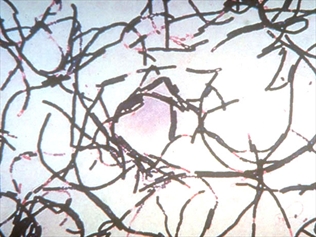
US officials say a batch of the lethal bacteria Anthrax was accidentally sent to Australia in 2008. Source: AAP
THE federal government has received an assurance there is no risk to public health after it was revealed the US military accidentally sent live anthrax to Australia.
FOREIGN Minister Julie Bishop says the 2008 incident will not harm the relationship between the two countries.
“We’re assured by the US military there is no risk to public health,” Ms Bishop said on Saturday. “We’re taking part in the investigation and I’m pleased it is under way.” She said it would not harm the relationship between the two countries, and Australia will take part in it. “This is how we co-operate,” she said. “The US has detected what I understand is a deep concern about something that happened seven years ago.” US authorities investigating the mistaken shipment of live anthrax by a military lab said on Friday a batch of the lethal bacteria was sent to Australia in 2008. The revelation suggested a wider problem in the handling of anthrax samples that were supposed to be rendered inactive by irradiation at a US Army facility in Utah. It is not clear precisely when samples from the 2008 batch were sent out or where the samples were sent, apart from Australia, officials said. Independent senator Nick Xenophon earlier said he wanted a full explanation of how the shipment was sent. “If the government can put in a big effort in terms of Johnny Depp’s dogs, then I reckon they should give a full explanation for something as serious as this,” Senator Xenophon said. “The fact that this occurred some seven years ago and we’re only hearing about it now, it could be the cover-up is almost as bad as the incident itself.” “What else do Australians not know about in terms of substances that can pose a risk to the safety of Australians?” Australia’s Department of Defence has confirmed the inactivated anthrax was provided to the Defence Science and Technology Organisation (DSTO) for research purposes in 2008 and 2009. Defence maintains that even under the then-belief that the batch was inactivated, the safety procedures in place are such that staff are protected. “There have been no reported illnesses as a result of the use of the samples in 2008 and 2009,” a Defence spokesperson said in a statement on Saturday. Incubation time for infection by anthrax is usually within weeks of exposure, so Defence is confident there were no adverse heath effects from handling the samples. “There is no risk to the general public,” the spokesperson said, adding that infection requires direct contact with anthrax spores. DSTO will analyse the current holdings received from the US Army to find out if any live spores were in the material from 2008.
